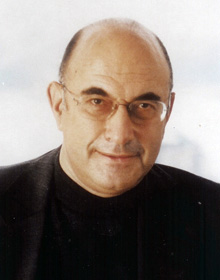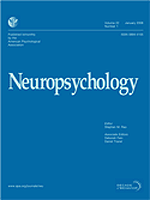Neuropsychology is a branch of psychology that is concerned with how the brain and the rest of the nervous system influence a person's cognition and behaviors. More importantly, professionals in this branch of psychology often focus on how injuries or illnesses of the brain affect cognitive functions and behaviors.
Neuropsychological tests are specifically designed tasks used to measure a psychological function known to be linked to a particular brain structure or pathway. Tests are used for research into brain function and in a clinical setting for the diagnosis of deficits. They usually involve the systematic administration of clearly defined procedures in a formal environment. Neuropsychological tests are typically administered to a single person working with an examiner in a quiet office environment, free from distractions. As such, it can be argued that neuropsychological tests at times offer an estimate of a person's peak level of cognitive performance. Neuropsychological tests are a core component of the process of conducting neuropsychological assessment, along with personal, interpersonal and contextual factors.
Cognitive neuropsychology is a branch of cognitive psychology that aims to understand how the structure and function of the brain relates to specific psychological processes. Cognitive psychology is the science that looks at how mental processes are responsible for our cognitive abilities to store and produce new memories, produce language, recognize people and objects, as well as our ability to reason and problem solve. Cognitive neuropsychology places a particular emphasis on studying the cognitive effects of brain injury or neurological illness with a view to inferring models of normal cognitive functioning. Evidence is based on case studies of individual brain damaged patients who show deficits in brain areas and from patients who exhibit double dissociations. Double dissociations involve two patients and two tasks. One patient is impaired at one task but normal on the other, while the other patient is normal on the first task and impaired on the other. For example, patient A would be poor at reading printed words while still being normal at understanding spoken words, while the patient B would be normal at understanding written words and be poor at understanding spoken words. Scientists can interpret this information to explain how there is a single cognitive module for word comprehension. From studies like these, researchers infer that different areas of the brain are highly specialised. Cognitive neuropsychology can be distinguished from cognitive neuroscience, which is also interested in brain damaged patients, but is particularly focused on uncovering the neural mechanisms underlying cognitive processes.

Clinical neuropsychology is a sub-field of psychology concerned with the applied science of brain-behaviour relationships. Clinical neuropsychologists use this knowledge in the assessment, diagnosis, treatment, and or rehabilitation of patients across the lifespan with neurological, medical, neurodevelopmental and psychiatric conditions, as well as other cognitive and learning disorders. The branch of neuropsychology associated with children and young people is pediatric neuropsychology.
Cognitive neuropsychiatry is a growing multidisciplinary field arising out of cognitive psychology and neuropsychiatry that aims to understand mental illness and psychopathology in terms of models of normal psychological function. A concern with the neural substrates of impaired cognitive mechanisms links cognitive neuropsychiatry to the basic neuroscience. Alternatively, CNP provides a way of uncovering normal psychological processes by studying the effects of their change or impairment.
Timothy Shallice is a professor of neuropsychology and past director of the Institute of Cognitive Neuroscience, part of University College London. He has been a professor at Cognitive Neuroscience Sector of the International School for Advanced Studies (SISSA) since 1994.
Arthur Lester Benton was a neuropsychologist and Emeritus Professor of Neurology and Psychology at the University of Iowa.
Nonverbal learning disorder is a learning disorder characterized by verbal strengths as well as visual-spatial, motor, and social skills difficulties. It is sometimes confused with attention deficit hyperactivity disorder and autism spectrum disorder, and some overlap with these disorders seems to exist. Nonverbal learning disorder has never been included in the American Psychiatric Association's Diagnostic and Statistical Manual of Mental Disorders or the World Health Organization's International Classification of Diseases.
Edith F. Kaplan was an American psychologist. She was a pioneer of neuropsychological tests and did most of her work at the Boston VA Hospital. Kaplan is known for her promotion of clinical neuropsychology as a specialty area in psychology. She examined brain-behavioral relationships in aphasia, apraxia, developmental issues in clinical neuropsychology, as well as normal and abnormal aging. Kaplan helped develop a new method of assessing brain function with neuropsychological assessment, called "The Boston Process Approach."

Elkhonon Goldberg is a neuropsychologist and cognitive neuroscientist known for his work in hemispheric specialization and the "novelty-routinization" theory.
Kenneth M. Heilman is an American behavioral neurologist. He is considered one of the fathers of modern-day behavioral neurology.

The American Board of Professional Psychology (ABPP) is the primary organization for specialty board certification in psychology.

Springer Publishing is an American publishing company of academic journals and books, focusing on the fields of nursing, gerontology, psychology, social work, counseling, public health, and rehabilitation (neuropsychology). It was established in 1950 by Bernhard Springer, a great-grandson of Julius Springer, and is based on the 15th floor of the Salmon Tower in Midtown Manhattan, New York City.
Some of the research that is conducted in the field of psychology is more "fundamental" than the research conducted in the applied psychological disciplines, and does not necessarily have a direct application. The subdisciplines within psychology that can be thought to reflect a basic-science orientation include biological psychology, cognitive psychology, neuropsychology, and so on. Research in these subdisciplines is characterized by methodological rigor. The concern of psychology as a basic science is in understanding the laws and processes that underlie behavior, cognition, and emotion. Psychology as a basic science provides a foundation for applied psychology. Applied psychology, by contrast, involves the application of psychological principles and theories yielded up by the basic psychological sciences; these applications are aimed at overcoming problems or promoting well-being in areas such as mental and physical health and education.
The Halstead-Reitan Neuropsychological Test Battery (HRNB) and allied procedures is a comprehensive suite of neuropsychological tests used to assess the condition and functioning of the brain, including etiology, type, localization and lateralization of brain injury. The HRNB was first constructed by Ward C. Halstead, who was chairman of the Psychology Department at the University of Chicago, together with his doctoral student, Ralph Reitan. A major aim of administering the HRNB to patients was if possible to lateralize a lesion to either the left or right cerebral hemisphere by comparing the functioning on the both sides of the body on a variety of tests such as the Suppression or Sensory Imperception Test, the Finger Agnosia Test, Finger Tip Writing, the Finger Tapping Test, and the Tactual Performance Test. One difficulty with the HRNB was its excessive administration time. In particular, administration of the Halstead Category Test was lengthy, so subsequent attempts were made to construct reliable and valid short-forms.

Neuropsychology(journal) is a peer-reviewed academic journal that was established in 1987 and covers neuropsychology. It is published by the American Psychological Association.
Antonio E. Puente is an American neuropsychologist and academic. He was the president of the American Psychological Association in 2017. He has a private practice, is the founding director of a bilingual mental health clinic, and is on the psychology faculty at the University of North Carolina Wilmington (UNCW). He founded the journal Neuropsychology Review.
The Journal of Clinical and Experimental Neuropsychology is a peer-reviewed scientific journal covering research in clinical and experimental neuropsychology. It was established in 1979 as the Journal of Clinical Neuropsychology, obtaining its current name in 1985. It is published ten times per year by Routledge and the editors-in-chief are Lisa Rapport and Julie Suhr. According to the Journal Citation Reports, the journal has a 2017 impact factor of 1.853.
The Journal of Neuropsychology is a biannual peer-reviewed scientific journal covering clinical and research studies across neurology, psychology, and psychiatry. It is published by The British Psychological Society. The editors-in-chief is Martin Gareth Edwards.
Developmental Neuropsychology is a peer-reviewed scientific journal covering the intersection of developmental psychology and neuropsychology. It was established in 1985 and is published eight times per year by Routledge. The editor-in-chief is Robert J. McCaffrey. According to the Journal Citation Reports, the journal has a 2018 impact factor of 1.344.



